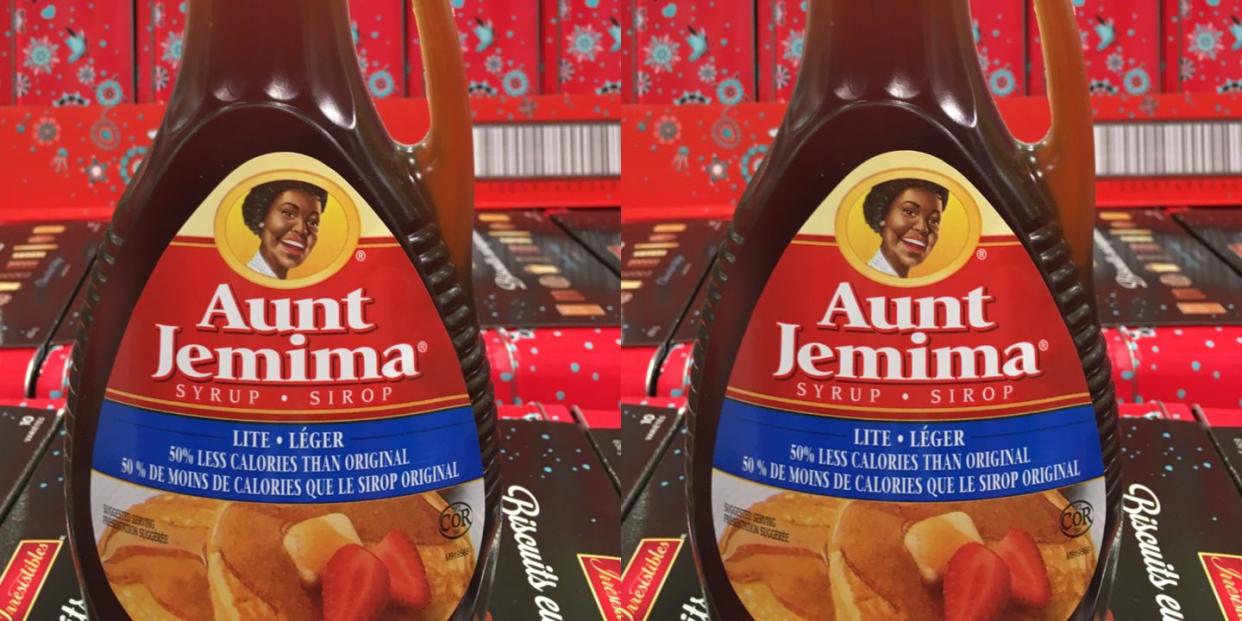Aunt Jemima Is Changing Its Name and Logo as It Acknowledges Its "Origins are Based on a Racial Stereotype"

Quaker Oats announced this week that it will be changing the name and logo of its Aunt Jemima brand, saying that its "origins are based on a racial stereotype," according to NBC News.
"We recognize Aunt Jemima’s origins are based on a racial stereotype," vice president and chief marketing officer of Quaker Foods North America Kristin Kroepfl said in a press release obtained by the outlet: "As we work to make progress toward racial equality through several initiatives, we also must take a hard look at our portfolio of brands and ensure they reflect our values and meet our consumers’ expectations."
Customers can expect new packaging for all its products—including syrups and pancake mixes—to start hitting shelves in fall 2020, but the brand did not immediately announce a new name. Quaker will also be donating at least $5 million over the next five years "to create meaningful, ongoing support and engagement in the Black community."
Criticism of the brand's name and logo is not new. The brand's timeline said that it was originally "brought to life" by Nancy Green, who they currently describe as a "storyteller, cook, and missionary worker," but who NBC News reported was also a formerly enslaved person. When the logo was first created, Aunt Jemima was dressed in the style of a "mammy," a racist caricature that often appeared in minstrel shows. The logo has been updated over the years, as Kroepfl noted in the release, with the brand removing the kerchief around her head in 1989 in favor of a pearl earring.
Riché Richardson, an associate professor in the Africana Studies and Research Center at Cornell University and an artist, called for the logo's removal back in 2015 in a piece for The New York Times. She also said the brand's name was also derived from a minstrel song Old Aunt Jemima.
"This Aunt Jemima logo was an outgrowth of Old South plantation nostalgia and romance grounded in an idea about the 'mammy,' a devoted and submissive servant who eagerly nurtured the children of her white master and mistress while neglecting her own. Visually, the plantation myth portrayed her as an asexual, plump black woman wearing a headscarf," she wrote.
"It is about time for there to be some honest conversation about what is at stake in continuing to market products even nowadays under names such as 'Aunt Jemima,'" she concluded. She also issued a similar call to The TODAY Show this week.
"It is urgent to expunge public spaces of a lot of these symbols that for some people are triggering and represent terror and abuse," she told them.
You Might Also Like

